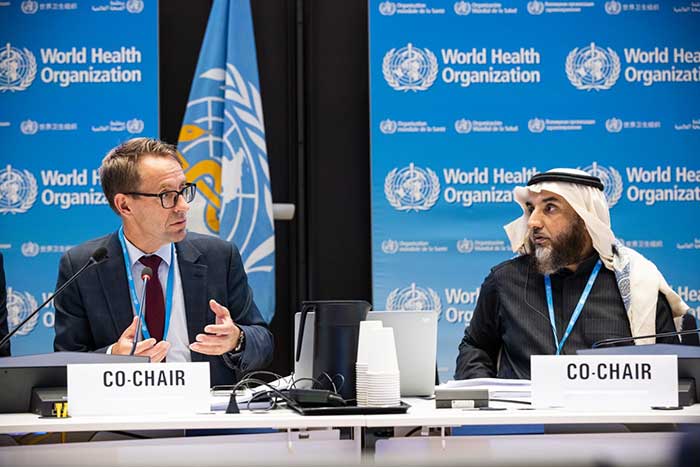
Governments are nearing an agreement on a set of amendments to the International Health Regulations (IHR) established in 2005.
These proposed changes aim to enhance the international community’s ability to detect and respond to pandemic threats, as discussed during the eighth meeting of the Working Group on Amendments to the IHR (WGIHR), which was paused on April 27 and is set to resume mid-May.
The World Health Organization (WHO) reported significant progress at the meeting, with state parties agreeing on critical areas of the amendment package, which will be forwarded for consideration and potential adoption at the World Health Assembly from May 27 to June 1.
WHO Director-General Dr. Tedros Adhanom Ghebreyesus emphasized the necessity of the amendments. “The COVID-19 pandemic showed the need to strengthen them in some areas to make them fit for purpose,” Dr. Tedros said in a statement.
“Countries are grasping this historic opportunity to protect future generations from the impact of epidemics and pandemics, with a commitment to equity and solidarity.”
The meeting also aligns with negotiations for the world’s first pandemic agreement, aimed at enhancing global collaboration to prepare for, prevent, and respond to pandemics. This includes a proposal that separate resolutions concerning the two processes be submitted to the upcoming Health Assembly.
WGIHR Co-Chair Dr. Ashley Bloomfield highlighted the urgency of the revisions. “The work to bolster our global defenses against public health emergencies and risks, through agreeing a stronger set of International Health Regulations, reflects both the risks our highly interconnected world faces today, and the recognition and readiness of countries to ensure their citizens are better protected,” he stated.
Dr. Abdullah Assiri, fellow WGIHR Co-Chair, stressed the practicality and critical nature of the amendments. “The COVID-19 pandemic showed the world that viruses of pandemic potential do not respect national borders,” Dr. Assiri noted.
“Amending the International Health Regulations reflects the critical need to bolster our collective defenses against current and future public health risks so people’s health, societies, and economies can be better protected, all whilst firmly respecting and adhering to the principle of national sovereignty.”
The final session of the eighth meeting of the WGIHR is scheduled for May 16-17, where the group aims to finalize the amendment package.
The IHR currently includes 196 State Parties, and any amendments adopted would automatically come into force after a set period unless a state opts out by notifying the WHO Director-General of a rejection or reservation.




















